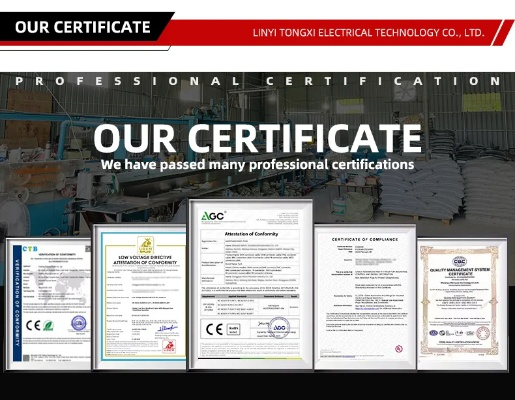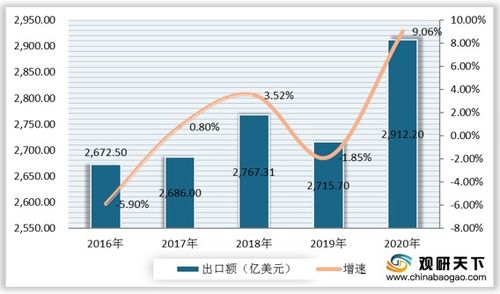The Role of Textile Certification in Enhancing Trade and Building Trust
Textile certification plays a crucial role in enhancing trade and building trust. Through the use of quality control measures, textile certification ensures that products meet certain standards, which helps to increase consumer confidence and trust in the industry. This is particularly important in the textile sector, where the quality and safety of products can have significant impacts on people's lives. By providing consumers with reliable information about the origin, production methods, and materials used in textile products, textile certification helps to build trust and promote fair trade practices. In addition, certification programs can also help to reduce waste and improve efficiency in the textile industry by promoting sustainable practices and reducing the need for excessive consumption. Overall, textile certification is essential for ensuring that the textile industry remains competitive and trustworthy while promoting environmentally friendly practices.
Introduction: The textile industry is a significant contributor to global trade, with the production and sale of clothing, home furnishings, and other textile products being integral to economies worldwide. As this industry continues to expand, the importance of certification has become increasingly apparent. Textile certification, or textile certificates, play a critical role in ensuring that products meet specific quality standards, environmental requirements, and consumer expectations. In this article, we will explore the significance of textile certification, its benefits for both manufacturers and consumers, and how it contributes to building trust in the textile industry.

Textile Certification Standards: There are several types of textile certifications, each aimed at different aspects of product quality and sustainability. Some common certifications include:
-
Oeko-Tex Standard 100: This standard is used to test and label textile products for their resistance to harmful substances such as formaldehyde and lead. It is widely recognized as a benchmark for safety and environmental performance in the textile industry.
-
Global Organic Textile Standard (GOTS): GOTS is an internationally recognized system for organic textile production that ensures the use of sustainable materials and processes. Products certified by GOTS are made from organically grown cotton, wool, silk, and alpaca fibers.
-
Fairtrade Certified: Fairtrade certification ensures that workers in the textile industry receive fair wages and working conditions. This certification also aims to promote sustainable production practices that benefit the environment and local communities.
-
BSCI (Bureau of Investigation into Crime and Corporations): This certification system focuses on corporate governance and labor practices within the textile industry. Companies must adhere to strict guidelines regarding workplace safety, fair treatment of employees, and transparency in operations.
Benefits of Textile Certification: Textile certification offers numerous benefits to both manufacturers and consumers:
-
Consumer Reassurance: When consumers purchase products certified by reputable organizations like Oeko-Tex or GOTS, they can feel confident that their purchases are safe and environmentally responsible. This trust can lead to increased sales and customer loyalty.
-
Environmental Sustainability: Certification programs like Oeko-Tex focus on reducing the environmental impact of textile production. By choosing certified products, consumers can help reduce waste and protect natural resources.
-
Transparency and Accountability: Certification systems like BSCI require companies to disclose information about their labor practices and corporate governance. This transparency can help build trust among consumers and investors alike.
-
Market Expansion: Companies that invest in certification can differentiate themselves from competitors and attract new customers. They may also be able to negotiate better terms with suppliers and partners who value their commitment to sustainability and quality.
Case Study: One example of the benefits of textile certification is the case of Patagonia. The outdoor clothing company was initially known for its high-quality products but struggled to gain market traction due to concerns about its sourcing practices. However, when Patagonia began using Oeko-Tex certification to advertise its products, it quickly gained recognition for its commitment to ethical and sustainable manufacturing practices. This move helped to increase consumer confidence in Patagonia's brand and led to a significant increase in sales.
Conclusion: In conclusion, textile certification plays a crucial role in promoting trust, safety, and sustainability in the textile industry. By adopting these certifications, manufacturers can differentiate themselves from competitors and build a loyal customer base. For consumers, opting for certified products can provide peace of mind knowing that they are supporting businesses that prioritize environmental and social responsibility. As the textile industry continues to evolve, it is essential that certification standards remain relevant and adaptable to meet changing consumer demands and global challenges.

大家好,今天我们将围绕纺织品认证TC交易证书这一主题展开讨论,纺织品认证TC交易证书是确保纺织品质量、安全与环保的重要手段,对于促进国际贸易和消费者信心具有重要意义,下面我们将通过英文案例说明和表格补充说明的方式,详细介绍纺织品认证TC交易证书的相关内容。
纺织品认证TC交易证书概述
纺织品认证TC交易证书是纺织品出口贸易中的重要凭证,它证明了出口纺织品符合相关标准和法规要求,通过纺织品认证TC交易证书,出口商可以获得国际市场的信任和认可,提高产品的竞争力。
案例说明
以某纺织品出口企业为例,该企业在纺织品出口过程中成功获得了TC认证交易证书,该企业在出口前进行了全面的纺织品质量检测和认证工作,确保出口产品的质量符合国际标准,在获得TC认证交易证书后,该企业得到了国际市场的广泛认可,提高了产品的市场竞争力。
在案例中,该企业采用了以下步骤来获得TC认证交易证书:
- 了解相关标准和法规要求:该企业首先了解国际纺织品标准和法规要求,确保出口纺织品符合国际标准。
- 制定检测和认证计划:该企业制定了详细的检测和认证计划,包括检测设备和人员、检测项目和流程等。
- 实施检测和认证工作:该企业按照计划实施检测和认证工作,确保出口产品的质量符合要求。
- 提交申请并获得认证:该企业将检测和认证结果提交给相关部门进行审核,最终获得了TC认证交易证书。
表格补充说明
以下是关于纺织品认证TC交易证书的表格补充说明:
表格1:纺织品认证TC交易证书信息表
| 字段名称 | 详细描述 |
|---|---|
| 证书编号 | TC认证交易的唯一标识符 |
| 出口企业名称 | 出口企业的名称 |
| 出口产品类型 | 纺织品的类型 |
| 标准与法规要求 | 出口纺织品符合的国际标准和法规要求 |
| 检测与认证过程 | 企业实施的全面纺织品质量检测和认证工作 |
| 结果展示 | 检测和认证结果的具体展示内容 |
| 获得认可情况 | 国际市场的认可情况,如市场份额、客户评价等 |
纺织品认证TC交易证书的重要性与意义
纺织品认证TC交易证书是纺织品出口贸易中的重要凭证,具有以下重要性和意义:
- 提高产品质量与安全:通过纺织品认证TC交易证书,可以确保出口纺织品符合相关标准和法规要求,提高产品质量与安全水平。
- 促进国际贸易:纺织品认证TC交易证书是国际贸易的重要凭证,可以增加产品的国际竞争力,促进国际贸易的发展。
- 消费者信心保障:纺织品认证TC交易证书可以增强消费者的信心,提高产品的信任度和可靠性。
纺织品认证TC交易证书是纺织品出口贸易中的重要凭证,对于促进纺织品出口贸易、提高产品质量与安全水平、增强消费者信心具有重要意义,在获得TC认证交易证书的过程中,企业需要了解相关标准和法规要求,制定检测和认证计划,实施检测和认证工作,并提交申请并获得认证,相关部门也需要加强对纺织品认证TC交易证书的管理和监督,确保其真实性和有效性。
Articles related to the knowledge points of this article:
Exploring the Rich Traditions of Nantong Yayu Fang Textiles
The Story of Western Textiles at民西纺织品公司



